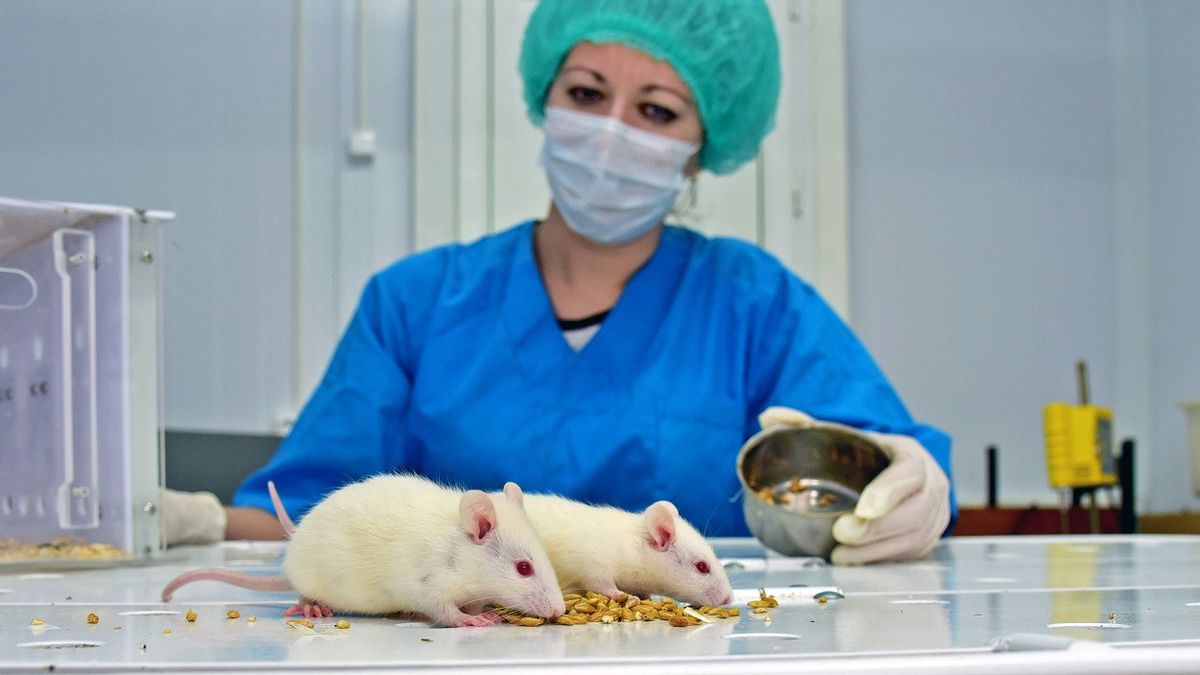JAKARTA - If nothing goes wrong, Switzerland will hold a vote on Sunday to garner support for holding a referendum banning medical testing on animals, becoming the first country in the world if approved.
More than 550,000 animals died in laboratory tests in 2020 in Switzerland, according to government statistics. That figure includes 400,000 mice and rats, nearly 4,600 dogs, 1,500 cats and 1,600 horses. Primates, cattle, pigs, fish and birds were also killed during and after the experiment
"It's cruel and there's no need to experiment on animals and I believe we can develop drugs without it," said Renato Werndli, a doctor from northeastern Switzerland who launched the initiative under Switzerland's direct democracy system.
The ban is not expected to pass, however, to the relief of the pharmaceutical sector, which has warned the move would halt the development of new drugs and force companies and researchers to move overseas. Switzerland is known as one of the big countries in the pharmaceutical field.
"We should not exploit animals for our own selfish ends," Werndli said, adding research methods such as biochips, tiny chips that house a large number of biochemical reactions, computer simulations or human microdosing were more effective than animal testing.

Pharmaceutical lobby group Interpharma said the sector, which includes companies such as Roche and Novartis, accounts for 9 percent of the Swiss economy including indirect effects, and generates nearly half of Switzerland's exports.
Interpharma has led industry opposition, saying the proposal would be devastating if adopted.
"Drug research, clinical studies in hospitals and basic research at universities, will no longer be possible," said Interpharma CEO Rene Buholzer.
Pharmaceutical company bosses say a ban on animal testing could lead to the expiration of new drugs.
"I think you have seen in times of COVID-19 how important it is to find new vaccines, how important new drugs are. And they have been tested on animals," Idorsia Chief Executive Jean-Paul Clozel told Reuters.
Separately, Maries van den Broek of the University of Zurich conducted a study implanting tumors into mice, to study how their immune systems could be strengthened to fight cancer.
"Because we don't understand even 10 percent of the processes that occur inside tumors, it's not possible to use computer models or cell culture to understand the complex biology of cancer."

Before scientists start animal experiments, they must prove there is no alternative and their research is important.
"We use about 750 mice per year. They all died at the end of the experiment, but there was no other alternative. Without this particular experiment, we would not be able to develop treatments that save human lives," he explained.
The latest poll shows only 26 percent of voters support the ban and 68 percent oppose it.
For your information, Switzerland holds a referendum four times a year, voting last year in favor of the government's coronavirus restrictions and agreeing to same-sex marriage.
Werndli said the campaign had raised awareness about the plight of laboratory animals and remained hopeful for success.
"I hope we can finally change and Switzerland can be a positive example for the rest of the world to help stop animal suffering."
The English, Chinese, Japanese, Arabic, and French versions are automatically generated by the AI. So there may still be inaccuracies in translating, please always see Indonesian as our main language. (system supported by DigitalSiber.id)













